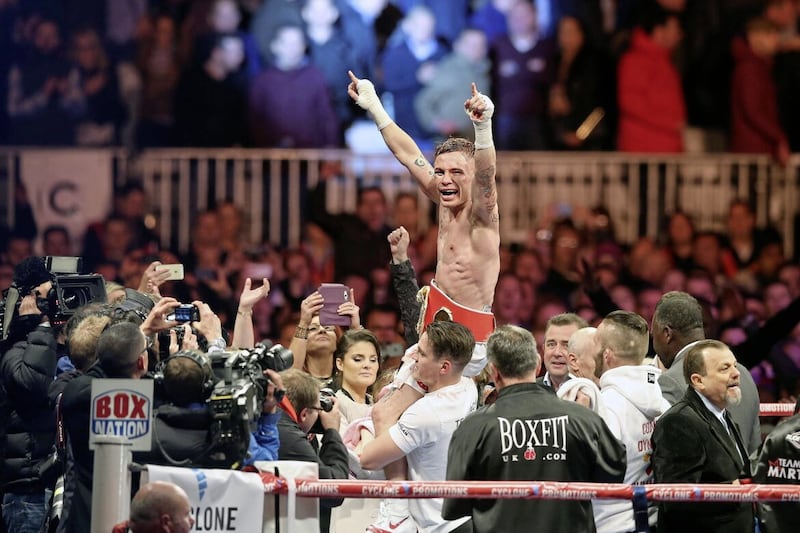THE start of the Olympics always conjures up memories of highlight reel moments that lit up Games gone by – from Michael Carruth’s leap to Mary Peters’s smile, Sonia's silver and Katie Taylor collapsing to her knees.
Still there is an eeriness heading into Tokyo 2020. Dispatches from Japan leave no doubt that this Games wasn’t wanted, not now. The opening ceremony, which gets under way at 12pm Irish time today, will be played out at an empty Olympic Stadium.
Marco Balich, a senior advisor ahead of today’s show, has predicted a “much more sobering” event than those with which we have become familiar, one “in sync with the sentiment of today”.
Striking the correct chord is hugely important, and for all the magnificence of Beijing’s Bird’s Nest, the spectacle of London 2012 and Rio’s cornucopia of colour five years ago, few moments in the history of the Games itself can match the opening ceremony in Atlanta 25 years ago.
Not because of any flashy fireworks or clever choreography. Instead this night, like so many in the history of sport before, belonged to Muhammad Ali – his appearance from the wings to light the Olympic cauldron drawing a collective gasp from the 80,000-plus crowd watching on.
“Honestly,” says boxer Brian Magee, who was there with fellow hopeful Damaen Kelly, coach Michael Hawkins and the rest of the Irish Olympic team, “it felt as though the stadium was shaking.
“Even thinking about it now, the hairs are standing on the back of my neck…”
And what made it so special was that it was so unexpected.
For the 15 years before, since a glittering career ended in uninspiring points defeat to Trevor Berbick, the early signs of Parkinson’s already all too evident, Ali had largely stepped back from public life.
Only a select few knew he would be inside the Centennial Stadium on July 19, 1996 ready to command the world’s attention once more. One of those was Janet Evans, the American swimmer who carried the Olympic torch from the running track and up to where Ali waited.
She only found out about the ceremony’s star turn at the previous night’s rehearsal, when cause for concern was clear.
“They had practiced a couple of times with him and he had dropped it a couple of times,” she told the podcast ‘The Power of the Torch’.
“I was told not to unignite my torch… I was told to really make sure that my torch was still ignited in case Muhammad Ali had some trouble with his torch.”
They needn’t have worried. If ever a man was born to the big stage…
As the spotlight descended upon him, dressed all in white, those initial gasps soon gave way to chants of ‘Ali, Ali, Ali’.
The joy and the cheers reverberated, but for those who had grown up with the Ali of the ’60s and ’70s, there was shock and - in some part - sadness. The ‘Louisiana Lip’, the force of nature whose personality and pugilistic prowess would redefine sport, celebrity and everything that came with it, was stood before them again, though not as they remembered him.
Now 54, the effects of Parkinson’s increasingly evident, Ali’s left arm shook violently as he took hold of the torch with his right. Having passed through 10,000 hands to get there, finally it rested in his.
And while Ali’s face wore a familiar frozen expression, his wide eyes were a reminder of the defiance that had brought a young boy to the pinnacle years before, the intensity of his glare speaking only of the effort summoned to see out the task.
“It felt like everybody was in awe at that moment,” recalls Magee, “there were all these thousands of people there but you could’ve heard a pin drop.
“You could just feel that love for him. Everybody was willing him to do it.”
Clasping both hands around the torch, Ali slowly lowered it downwards, a small ball of fire eventually catching the pulley system and sliding upwards, igniting the cauldron in an almighty glow.
Renowned journalist Hugh McIlvanney covered some of biggest nights of Ali’s career in the ring, and was also there for one of the most unforgettable outside of it.
“He stood for several minutes looking at the dancing flames he had created,” wrote McIlvanney, “plainly savouring the sense of having reasserted his natural right to be the focus of global attention, and then he disappeared from sight, leaving behind a painful confusion of emotions.”
That moment also brought Muhammad Ali’s Olympic story full circle.
In 1960, as an 18-year-old then called Cassius Clay, he had stood on top of the podium in Rome after dancing his way to light-heavyweight gold.
Months later, he went to a white-owned restaurant in Louisville for something to eat – “thought I’d put them on the spot”, as he recalled in his 1975 autobiography ‘The Greatest’.
“I sat down and asked for a meal. The Olympic champion wearing his gold medal. They said, ‘we don't serve n****rs here’. I said ‘that's okay, I don't eat ’em’. But they put me out in the street…”
He ran straight to the Second Street bridge and flung his medal into the Ohio River.
Thirty six years on in Atlanta – a city, like Louisville and so many others in America’s south, with a history of racial segregation – he got it back.
In one of the last medal ceremonies of the 1996 Olympics, Ali was presented with a gold medal by International Olympic Committee president Juan Antonio Samaranch at half-time of the men’s basketball final between the USA and Yugoslavia.
All those years on, despite everything achieved in between, it represented something special to him. Rome, after all, was when he first announced himself to the world - and the raw power of that opening night inside the Centennial Stadium was another that cemented Ali’s heroic legacy, this time in the face of his toughest adversary.








